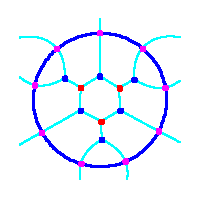
Math 648: Computational Algebraic Geometry
Instructor: Frank SottileLectures: TΘ 15:55–17:10 Blocker 121
Course webpage: https://franksottile.github.io/teaching/26.1/648.html
Grading: Some homework/computer projects and end-of-term projects.
Prerequisites: Graduate algebra or permission of instructor. This may be taken concurrently with Math 654.
Office Hours: Mondays 14:00 – 14:50 & Thursdays 10:00 – 11:00.
Course Syllabus PDF.
